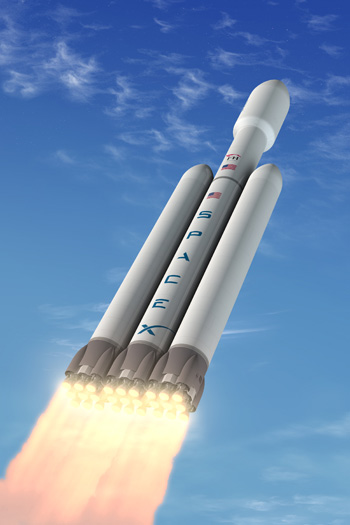On March 3rd, a Chinese news agency reported that China plans on building the world’s most powerful rocket, capable of launching a staggering 130 tons to orbit.
A few weeks ago, NASA announced the White House NASA budget request for FY 2012 (PDF), stating that $1.8 billion dollars be spent on designing a new rocket system to replace the Shuttle (and the canceled Constellation program). The lift capability specifically mentioned in that budget outline? “100 - 130 tons”. This is in line with the 2010 NASA Authorization Act, which called for a 130 ton payload rocket. That Act was signed into law by President Obama in October 2010.
Hmmmm. Like I said. Interesting.
Let me make a few points here.
1) China, I think, is quite capable of following through on this. They’ve made a lot of progress in just a few years. They’ve put men in space, launched two successful missions to the Moon, plan on an unmanned lunar landing in the next few years, and an unmanned sample return mission after that. This new rocket – as powerful as a Saturn V – would be quite capable of landing humans on the Moon. However, I have no idea just when they would be able to build such a rocket, let alone launch one. Politics aside, the US could have one ready in a few years (spitballing, maybe 7 or 8?), but when it comes to NASA politics can never be put aside.
Of course, the added monkey in the wrench is the private company SpaceX announcing they’re working on a heavy lift vehicle. While it only has half the lift capacity of this proposed 130 ton payload rocket, SpaceX has a history of delivering on its promises, and at prices much lower than the competition.
How this plays out will again be interesting. If a launch on this rocket costs much less than half the proposed 130 ton rocket, then it might be more cost-effective to break up a mission into smaller payloads (for example, launching supplies and such to the Moon in an unmanned rocket, then following up with a second launch with astronauts). That’s not feasible for every mission, of course, but it may have an effect on the economics of heavy lift.
2) I hope this budget announcement itself kills the dumb and wrong idea that President Obama is killing manned spaceflight*. That is a meme that won’t hunt, folks. As I’ve said countless times, President Bush (correctly IMO) canceled the Shuttle program, but the Constellation program designed to replace it was falling way behind. Obama (correctly, again IMO) essentially killed Constellation, but even if he hadn’t there would be at least a 4-5 year gap between the end of the Shuttle and the time the US could launch people into space again. So the idea that Obama is destroying manned spaceflight is wrong for that reason alone.
Plus, this new budget allocates funds to develop this next heavy-lift vehicle using a lot of known technology (like Shuttle parts), with the clear goal of taking humans not only back into orbit but on longer, more distant missions as well. In fact, the budget specifically calls for long-term “…missions to multiple destinations, including the Moon, Lagrange points, near Earth asteroids, and Mars and its moons.”
So if anyone says President Obama is trying or has killed manned spaceflight, call them on it. It’s baloney.
3) I could tear apart this budget piece by piece and examine it, but I won’t bother yet. It’s just the President’s request, and Congress still has to vote on it. And, of course, the knives will be sharpened first.
The good news is this budget request does not represent a huge cut for NASA; ignoring inflation it’s very roughly the same as the 2010 and 2011 budgets. It’s hard to say what will survive Congress, which apparently has recently almost entirely lost its collective mind. But the past few budgets have not been as destructive as I had feared, and in many ways were targeted better than they have been in the past.
Tip o’ the nose cone to Slashdot and Universe Today.
* Even Wikipedia is parroting this nonsense, saying the FY 2011 budget is “forcing NASA to stop working on sending people to space.” That’s not true for the 2011 budget, nor is it for 2012. [UPDATE: Shortly after I published this article, the Wikipedia entry was edited to reflect my complaint! I’ll have to keep my eye on that and see if the editors discuss it.]
